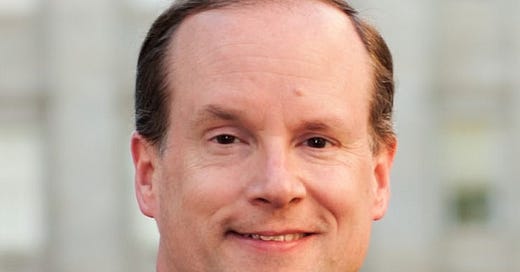OPINION: Policy research has its limitations
RALEIGH — If I didn’t believe public-policy research mattered, I wouldn’t have spent so much of my career commissioning and funding it.
At the national level, studies conducted by university scholars, government researchers, and think tankers help shape policymaking on Capitol Hill and supply political actors with intellectual ammunition. Here in North Carolina, research and analysis by the John Locke Foundation — and, in fairness, its ideological competitors — have often influenced decisions by governors, legislators, mayors, county commissioners, and other officials.
I’ve also been around long enough to discover the limitations of policy research. Despite warnings from fiscal analysts across the spectrum, for instance, neither Democrats nor Republicans have a serious plan even for slowing down the growth of the federal debt, much less stopping and reversing it.
Another example, much closer to home, is the ongoing use of tax dollars to build or renovate facilities for professional sports teams. The overwhelming consensus of scholarly research on the topic, going back many decades, is that states and localities that subsidize ballparks and arenas do not derive enough economic return — job creation, income gains, or rejuvenation of blighted areas — to justify the exorbitant cost.
“Whatever ambiguity there may have once been regarding the economic case for subsidizing stadiums has been clarified through extensive study,” wrote economists from Kennesaw State University, West Virginia University, and the University of Maryland-Baltimore County in a 2023 paper in the Journal of Policy Analysis and Management. “The empirical evidence is unambiguous: stadiums do not confer large positive economic or social benefits on host communities.”
Yes, people come to the games, and watch or follow them on local media. That generates revenue for the public and private entities in question. But for the most part, money spent on tickets, concessions, merchandise, and advertised products would otherwise have been spent on other goods and services in the market.
As for public dollars invested in sports teams or facilities to house them, taxpayers would get a better rate of return if those dollars were instead invested in core public services such as infrastructure, education, or public safety.
This is about as close to a consensus as you will find on a matter of public policy. Nevertheless, communities in North Carolina and beyond keep shoveling large amounts of money into ballparks and arenas. Why? Because of another well-established body of research called public-choice economics. Simply put, small groups with a common interest often prevail over larger groups with divergent interests. Sports subsidies are worth a great deal to team owners, employees, vendors, and diehard fans. Meanwhile, the cost per taxpayer is rather small. It’s easy to mobilize the beneficiaries in favor of subsidy. It’s hard to mobilize everyone else against it.
A similar dynamic explains the otherwise-puzzling fact that the state budget proposed by the North Carolina House of Representatives would reinstate bonuses for public schoolteachers with graduate degrees. The House has been trying to reinstate the pay bump for years. The Senate has, so far, resisted it.
The General Assembly got rid of the policy years ago for a good reason: nearly all peer-reviewed studies on the subject find no relationship between teacher effectiveness and possession of a graduate degree. Occasionally researchers find a small benefit for folks with advanced degrees in math or science who teach those subjects in high school — but even so the findings aren’t consistent and the vast majority of graduate degrees earned by teachers are in other subjects or education itself. Whatever their intrinsic value, these degrees do not improve teacher performance or even signal that those who earn the degrees are higher-performing teachers.
Again, it’s not hard to understand why this bad idea returns year after year. For university departments of education, the prospect of pay bumps was a major inducement for current or prospective teachers to enroll in graduate programs. When it went away, their enrollments dropped. They want it back.
Sound policy research is valuable. But it’s no guarantee of sound public policy.
John Hood is a John Locke Foundation board member. His books Mountain Folk, Forest Folk, and Water Folk combine epic fantasy with American history (FolkloreCycle.com).




